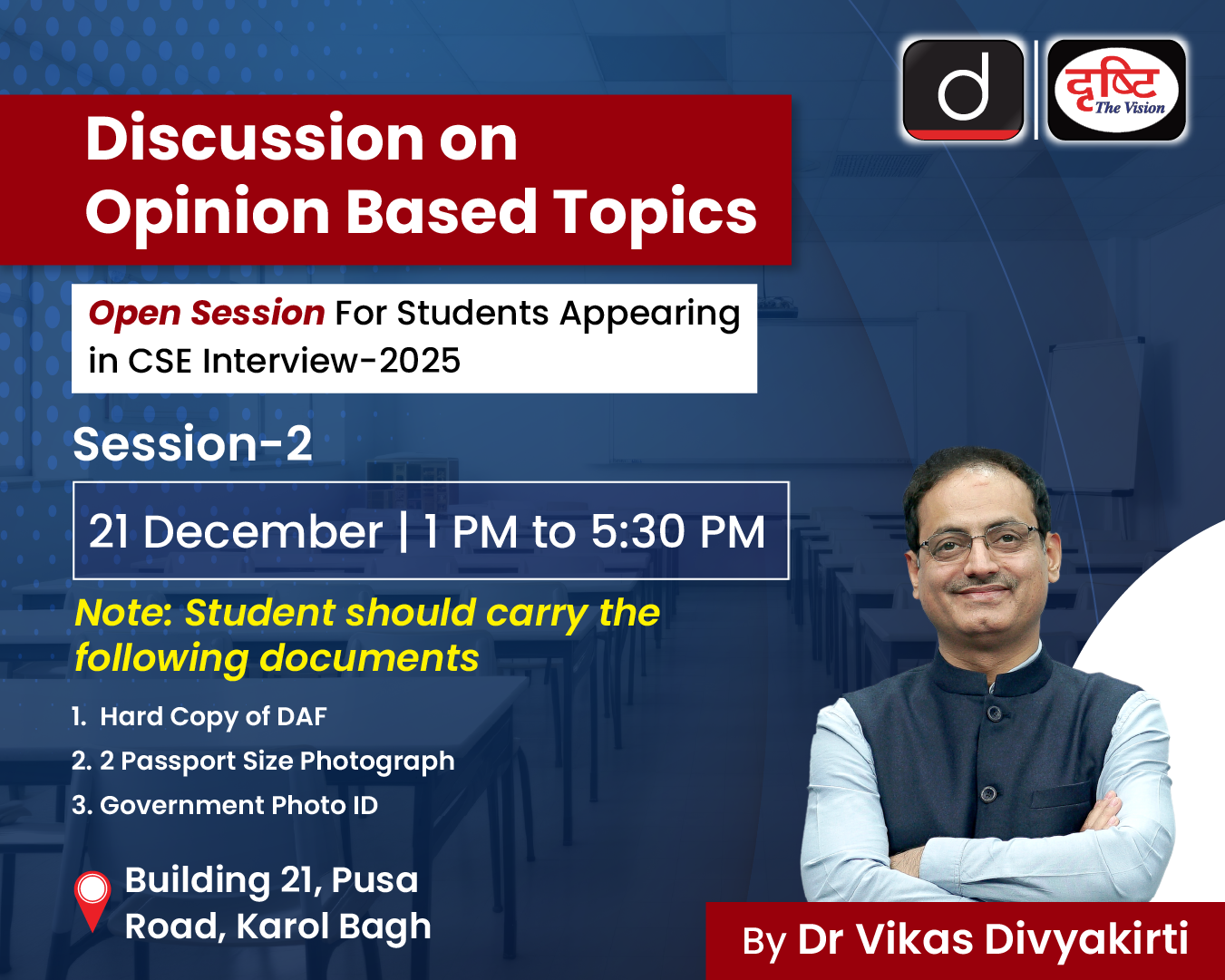- Filter By :
- Polity & Governance
- International Relations
- Social Justice
-
Q. Capital punishment is retributive justice and its effectiveness in curbing crime is contested. In this light, critically examine the need for continuance of capital punishment in India. (250 words)
07 Mar, 2019 GS Paper 2 Polity & GovernanceApproach:
- Give a short explanation of the term Capital punishment as retributive justice.
- Critically examine the Need for continuance of the capital punishment.
- Give a way forward.
Introduction:
- Capital punishment as theory of retribution justice focuses on the offence committed and just treatment of the individual, rather than prevention of crime. It asserts that blame is made effective through punishing persons who deserve unpleasant consequences on account of some wrongful act that they intentionally and willingly did.
- Provision of Capital punishment: Article 21 of the Indian Constitution ensures the Fundamental Right to life and liberty for all persons. It adds no person shall be deprived of his life or personal liberty except according to procedure established by law.
Body
Need for capital punishment—
- Appropriate Punishment is Imperative for Security in Society.
- Deterrent effect of death penalty is one of the basic arguments forwarded by the retentionists.
- Public opinion is in favour of the death penalty for certain heinous crimes, such as terrorism, rape, murder etc. The SC has reserved capital punishment for such ‘rarest of rare’ crimes only.
- Present day society has not yet matured for this reform (removal of death penalty) and the community has not yet ripened to that stage.
- In Dhananjoy Chatterjee v. State of West Bengal, the Supreme Court ruled that “imposition of appropriate punishment is the manner in which the courts respond to the society’s cry for justice against the criminals.
A critical examination of the need for continuance of capital punishment in India:
- Ambiguity of rarest of the rare cases: In Jagmohan Singh vs State of Uttar Pradesh (1973) the Supreme Court affirmed the constitutional validity of the death penalty and should be awarded only in the “rarest of rare” cases. However, the judgments do not provide a clue as to what constitutes the 'rarest of the rare cases.
- No evidence of its effectiveness: Scientific studies have consistently failed to find convincing evidence that the Capital punishment deters crime more effectively than other punishments.
- Fallibility of Judgment in case of Capital Punishment: A judgment given by human beings based on evidence produced in courts, the possibility of human error cannot be ruled out. As human justice remains fallible, the risk of executing the innocent will never be eliminated.
- Death Penalty discriminates between the privileged and the underprivileged: Justice Bhagwati in Bachan Singh’s (supra) case pointed out in his dissent that death penalty strikes most against the poor and deprived sections of society who cannot afford a competent lawyer.
- Long delay in execution: Extensive delay in the execution of a sentence of death does not serve any kind of purpose and is sufficient to invoke Article 21 and demand its substitution by the sentence of life-imprisonment.
- Reformative approach: Supreme Court has taken the view that “Reformative approach to 'punishment should be the object of criminal law”.
- Moral Grounds: By allowing death penalty morally nothing is achieved except more death, suffering and pain. If the social values really mean that killing is wrong, then the society must abolish death penalty. Death penalty legitimizes an irreversible act of violence by the state.
Way Forward
- The Law Commission of India in its 262nd Report (August 2015) recommended that death penalty be abolished for all crimes other than terrorism related offences and waging war.
- Measures like police reforms, witness protection scheme and victim compensation scheme should be taken up expeditiously by the government to prevent lapses and error in granting of capital punishment.
- There is an increased rhetoric for capital punishment for rape, heinous crimes against women, trade and trafficking of women and narcotics. Such arguments for provisions of death penalty have strong rationale on moral and social grounds.
- It must be retained for incorrigibles and hardened criminals but its use should be limited to the 'rarest of rare cases.
- The courts may make use of death penalty sparingly, only in certain offences, with considerable grounds for justification of capital punishment.
To get PDF version, Please click on "Print PDF" button.
Print PDF





